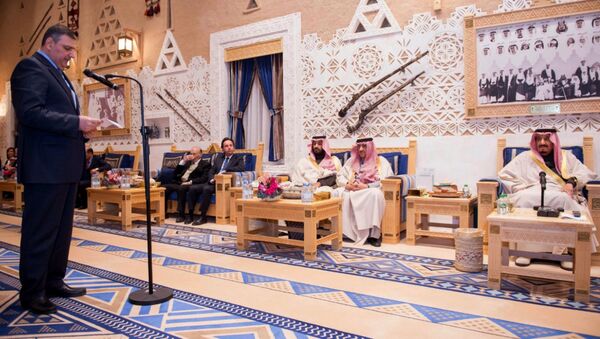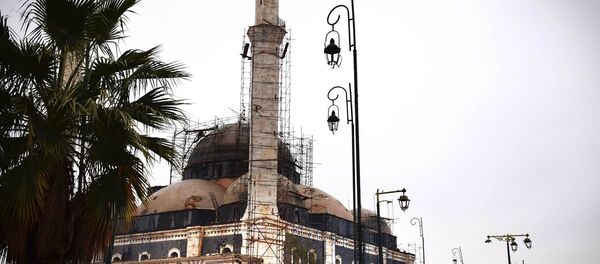Washington, NATO and their Gulf allies still expect Syrian President Bashar al-Assad to step down and a pro-Western client regime installed in its place, Bangkok-based geopolitical analyst Toni Cartalucci emphasizes.
"The West, and the United States in particular, has attempted to take on a more conciliatory tone as of late. And despite actually not really saying so, US Secretary of State John Kerry attempted to impress upon the world that 'regime change' was no longer in the cards. Of course, such statements are still followed by US expectations that President Assad will step down," Cartalucci writes in his recent article for New Eastern Outlook.
On November 24, a Turkish F-16 shot down a Russian Su-24 in Syrian airspace; Israel repeatedly conducted airstrikes in and around Damascus purportedly in order to provoke Syria into direct conflict.
In December 2015, Saudi Arabia held a "Syrian opposition meeting" that brought together various Islamist groups including influential al-Qaeda affiliates.
There is a lot of controversy surrounding the upcoming peace negotiations. The question regarding what forces should represent the opposition still remains unanswered.
The opposition and its principal backer in the region, Saudi Arabia, insist that Bashar al-Assad should step down as part of "political transition," Philip H. Gordon, a former White House adviser on Syria and now a fellow at the Council on Foreign Relations told The New York Times.
"They need some clarity on Assad before they are willing to de-escalate the conflict or negotiate interim steps," Gordon said.
Russia and Iran, in their turn propose to add groups which represent a broader section of Syrian society, including certain Kurdish representatives.
Ahead of the Geneva talks, Washington and its allies in the region have increased their military activities in Syria. At the same time, with the support of the Russian Air Force, the Syrian Arab Army is expelling extremists from their strongholds in the country.
Remarkably, on January 22 Stratfor, a US intelligence firm, reported that the US is expanding its support of Syrian "rebels" by taking control over the Rmeilan airbase, in the northeastern Syrian province of al-Hasakah. Satellite imagery released by Stratfor shows construction underway at the air field.
Cartalucci regards the Geneva talks as yet another attempt "to derail Syrian-Russian efforts to restore order to Syria and preserve Syria as a functioning nation-state."
According to Cartalucci, Russia and Syria should continue to make attempts to resolve the crisis by diplomatic means, at the same time remaining "entirely realist" about Washington, NATO and Gulf monarchs' genuine objectives in the Middle East.
"Fully defeating the West's proxies on the battlefield, securing Syria's borders, and creating a military deterrence to prevent direct Western military intervention… are the only conditions from which any 'peace deal' can then be struck with the West," the geopolitical analyst suggests.



